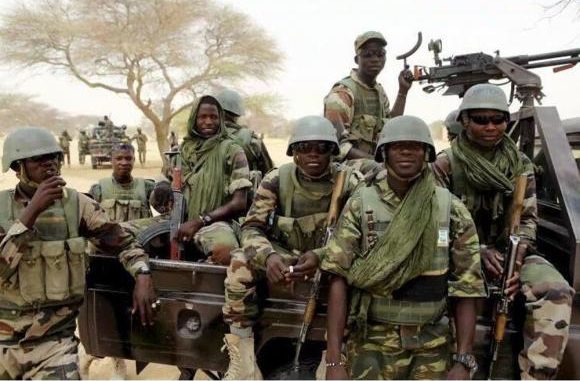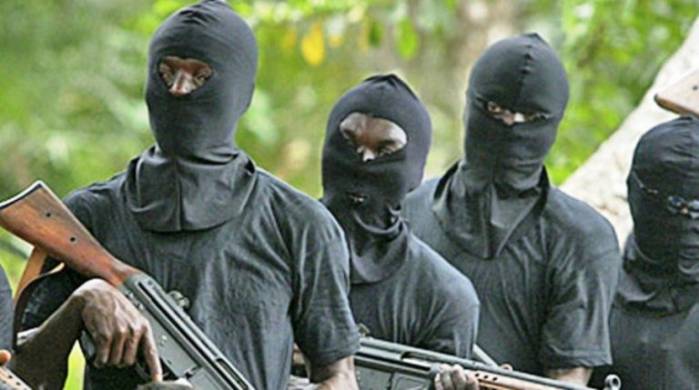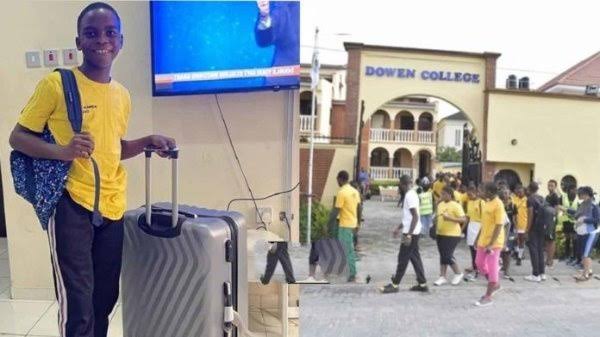Soldiers are said to have begun intense lobbying to avoid deployments to the North-East, while those already stationed there are lobbying for redeployment as a result of the escalating wave of Boko Haram attacks on military formations in the region.
According to a report by Punch quoting multiple military sources the fear of accepting postings to the North-East was part of the fallout of the Boko Haram attacks on military formations in Metele, Kangarwa, Malumfatori and Arge areas of Borno State as well as the Buni Gari area of Yobe State in November, more soldiers were now lobbying to avoid postings to the volatile North-East region.
The report quoted a Brigadier-General who spoke on condition of anonymity because he was not authorised to speak to the media, as saying that a significant number of personnel were influencing their posting against the North-East while some were deserting the military.
“In the military doctrine, we have what is called cowardice. Soldiers can exhibit cowardice when they hear negative reports. Let me tell you why we have been experiencing attacks in those Lake Chad areas. Those army deployments were intentionally made around Lake Chad to block the Boko Haram’s channels of supply. The Boko Haram understands why the military are blocking their channels and they therefore ensure they keep attacking those bases to open up their own channels of supply.
“There is a way some people have been glorifying the attacks and this makes the soldiers who are there to be afraid. These are very young military officers with families and they can be afraid. Most times when I as a general say I am on my way to the North-East, I get messages from friends and families to be careful. But I am going under escort. Now, imagine soldiers who are just deployed to actually go and fight. This is why some reports are not helpful because they are escalating these attacks, glorifying the terrorists and putting fear in our soldiers. Some of these soldiers read all these online reports and they are afraid. They are now avoiding going to the North-East like a disease.
“I just came back home and learnt that one of my cousins whom I brought into the army was redeployed. He was supposed to go to the North-East. He ran away. He is in the village in the South-South riding motorcycle, because he does not want to die.
“Now, if we have such incidences all over, what will become of our security architecture? Our worries are that while the terrorists are doing theirs, so many media reports reaching soldiers in the North-East are disturbing and pulling down their morale,” the Brig-Gen was quoted as saying.
Also a colonel serving in Abuja spoke to the paper on the latest development, saying personnel were now increasingly influencing their postings to avoid the North-East.
He said, “Soldiers are trained to die in the course of defending the country’s territorial integrity, but not when you die because there are no adequate equipment. The terrorists know how to strike because they have informants who leak the strengths and weaknesses of the army to them.
“Since there is no specific time frame for soldiers serving in the North-East, some of them are disgruntled and they are lobbying not to be posted there. The increasing attacks in the North-East are dampening the morale of troops and this is why the military authorities usually send the service chiefs to visit and talk to them.”
Further investigations confirmed to the Punch that a number of the soldiers serving in troubled areas of Bornu State were considering the option of deserting due to the renewed attacks by the Boko Haram insurgents.
Specifically, a soldier in the Maimalari Barracks, who spoke to Saturday PUNCH on condition of anonymity, said although the insurgents had yet to invade the area, their activities in neighbouring communities had raised concern over the safety of army personnel in the area.
The military source said some recent attacks by the insurgent groups had been focused on schools while soldiers captured by the terrorists were subjected to gruesome killings.
According to the soldier, the prevalence of these fearful developments has led to a situation where more soldiers now lobby to be redeployed out of the North-East.
The source said, “Honestly, I am even thinking of leaving (the military). They (insurgents) are coming close to the barracks. When I made an enquiry about my posting, I was told that I must complete four years (in Maiduguri); but I have spent two years. I do not know what to do.
“I will not make it (my quitting) official. I have made up my mind to go. But the problem I have is: what will I fall back to?”
The soldier added, “At first, the Boko Haram (insurgents) were in the villages. But they are coming close to the town now. And whenever they capture any soldier, they do not shoot the soldier; they just slaughter the soldier with knives.
“I know some soldiers who have blocked their posting to Bornu. They have godfathers. I also know many soldiers who influenced their posting after our training at the depot (in Kaduna). One of the female soldiers just told me that she was working to get posted to Lagos.”
A corporal, who served in the North-East between 2011 and 2016, identified only as Ben, said troops were lobbying because of inadequate weapons to defend themselves and the communities.
“You are given only AK-47 rifles to face the Boko Haram terrorists who have machine guns, GPMG, gun trucks and anti-aircraft guns. You are not going to return alive from that war. This is why some soldiers are willing to be redeployed, if it is possible.
“The terrain is not friendly. The land is desert and you need both adequate military and welfare provisions to survive. But these things are mostly not there,” Ben said.
According to findings by Saturday PUNCH, military postings to the North-East are done at any time during the year and there is no specific duration for troops posted to the North-East or any part of the country.
The army had posted new commanders to the North-East region at least two times this year, but the postings of soldiers are largely unannounced because of their numbers.
The Director, Army Public Relations, Brig Gen Sani Usman, confirmed that there was no specific time frame for rotation of troops deployed in the North-East, noting that soldiers could get a leave or pass from the theatre, depending on their circumstances.
Usman, in an interview with one of our correspondents, said some personnel in the North-East theatre of war were specialists, “whose jobs are very critical to the performance of a particular unit and formation.”
He said, “If you are talking about the duration, there is no specific time frame. However, there are provisions where soldiers are allowed to go on passes whenever the need arises. They are also allowed to go on a leave.
“The bottom line is that we are fighting a war and we are defending the territorial sovereignty of our country. I cannot speak on the longest duration anyone has stayed. It depends on the individual. It is not everyone who has duration. Military rotation has no time frame that you say, you must rotate people.”
The intensive attacks by insurgents began in July 2018 with the Al-Barnawi faction of the Boko Haram and the Islamic State West African Province fighters overrunning military bases and carting away weapons belonging to the army.
In the first week of July 2018, the terrorists overran the army base in Jilli, Yobe State, where over 20 soldiers were reportedly killed. In the same week, they attacked another army location in Bama with an undisclosed number of troops going missing.
The attacks forced the Chief of Army Staff, Lt Gen Tukur Buratai, to go to the North-East on assessment visit.
The Bama attack in Kwakwa and Chingori communities was also said to have recorded the loss of 10 soldiers.
The 233 Battalion troops in the Tarmuwa LGA of Yobe State were also on July 22 ambushed by the insurgents with several military gun trucks said to have been stolen.
The aftermath of these attacks in the last week of July was that the army authorities announced the replacement of the hitherto Commander of the Operation Lafiya Dole, Maj Gen Rogers Nicholas, with Maj Gen Abba Dikko.
READ ALSO: Fresh attack: Boko Haram kills Army commander, scores of soldiers in Borno
Yet on July 29, Boko Haram terrorists in three gun trucks attacked the army in Mairari village in the Monguno Local Government Area of Borno State, during which two soldiers were injured. Sixteen terrorists were also killed.
On September 8, the insurgents also staged an attack on an army base in Baga in the Kukawa LGA of Borno State, a day after they invaded another military base in Gudumbali, in the Guzamala LGA.
In both invasions, more than 20 soldiers were said to have been killed, although the army did not confirm the figures.
On September 13, the insurgents attacked the 145 Battalion troops’ base in Damasak, Borno State, while three days later, the insurgents ambushed troops along Bama Road in Maiduguri. The troops of 222 Battalion, 22 Brigade, were ambushed but the army was not clear on the casualty figures.
In the second week of September, the Boko Haram attacks on military bases again forced the service chiefs – the army chief and the Chief of the Air Staff, Air Marshal Sadique Abubakar – to relocate to the North-East region.
The pockets of attacks continued through October into November with the terrorists attacking an army base on October 28 in the Gashigar area of Borno State.
Three soldiers were killed in the location belonging to the 145 Battalion, when the insurgents invaded the base in 13 gun trucks.
Also, the insurgents attacked Katarko in the Gujba LGA of Yobe State on November 3. Days earlier, the terrorists had attacked the army base in Kukawa where 16 soldiers were reportedly missing after the invasion.
The most deadly attack in the last quarter of the year was on November 18 when the insurgents attacked the 157 Battalion’s base in Metele in the northern part of Borno State, with the death toll said to be more than 100 soldiers.
The army confirmed a week later that 23 soldiers died and 37 were injured in the Boko Haram’s invasion.
After Metele, however, the insurgents have attacked the military bases in Buni Gari and Gajiram, with some troops of the Nigerian Army said to have fled to Cameroon, Niger Republic and Chad to escape the superior firepower of the insurgents.
PUNCH












